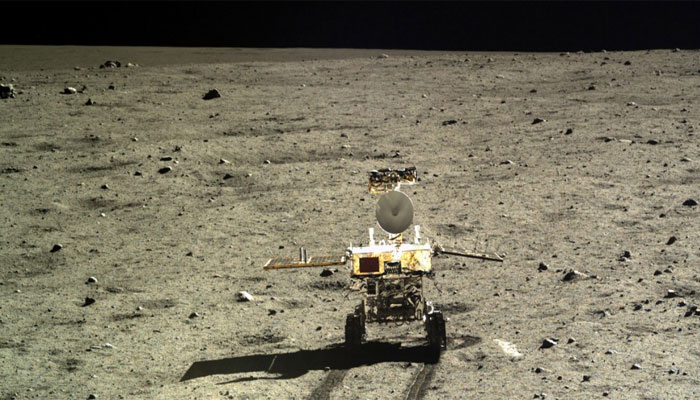Chinese rover finds lunar nights ‘colder than expected’
Temperatures on the moon´s surface plummeted to minus 190 degrees celsius (-310 degrees Fahrenheit) during the probe´s first lunar night, which "was colder than scientists expected," the China National Space Administration (CNSA) said.
Beijing: China´s lunar lander has woken from a freezing fortnight-long hibernation to find night-time temperatures on the moon´s dark side are colder than previously thought, the national space agency said Thursday.
The Chang´e-4 probe -- named after a Chinese moon goddess -- made the first ever soft landing on the far side of the moon on January 3, a major step in China´s ambitions to become a space superpower.
Temperatures on the moon´s surface plummeted to minus 190 degrees celsius (-310 degrees Fahrenheit) during the probe´s first lunar night, which "was colder than scientists expected," the China National Space Administration (CNSA) said.
The night-time temperatures were recorded by the Chinese probe after it became active on Wednesday, following a slumber that lasted for about two earth weeks.
They were lower than those recorded by previous US missions to the near side of the moon, Zhang He, executive director of the Chang´e-4 mission, told Xinhua news agency.
"That´s probably due to the difference in lunar soil composition between the two sides of the moon," he said.
A rover released from the probe -- dubbed Yutu-2 (Jade Rabbit) after the moon goddess´s pet -- also resumed operations "as planned" on January 29 and will perform experiments in the Von Karman Crater, CNSA said in a statement.
Chang´e-4 is equipped with instruments developed by scientists from Sweden, Germany and China.
It is tasked with studying the lunar environment, cosmic radiation and the interaction between solar wind and the moon´s surface.
The probe will now continue with it´s experiments, CNSA said.
Scientific instruments on board China´s previous Chang´e-3 moon mission, sent in late 2013, have withstood over 60 lunar nights and are still in operation, Xinhua said.
-
US House passes ‘SAVE America Act’: Key benefits, risks & voter impact explained
-
US House passes resolution to rescind Trump’s tariffs on Canada
-
British Soap Awards scrapped again as ITV confirms 2026 hiatus
-
Climate nearing dangerous tipping points, study shows
-
Jill Biden’s former husband charged with wife’s murder
-
NASA's Hubble Space Telescope discovers ‘Dracula Disk', 40 times bigger than solar system
-
Annular solar eclipse 2026: Where and how to watch ‘ring of fire’
-
Bad Bunny delivers sharp message to authorities in Super Bowl halftime show












